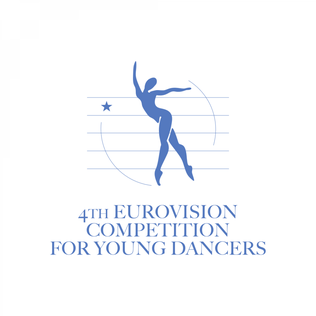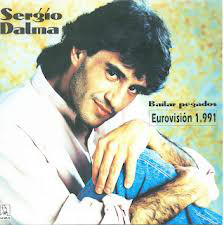
The Eurovision Young Dancers 1991 was the fourth edition of the Eurovision Young Dancers, held at the Helsinki City Theatre in Helsinki, Finland on 5 June 1991. Organised by the European Broadcasting Union (EBU) and host broadcaster Yleisradio (YLE), dancers from eight countries participated in the televised final. A total of fifteen countries took part in the competition. Bulgaria made their début, while Austria, Canada and United Kingdom withdrew from the contest. However, the Austrian broadcaster ÖRF and the Canadian CBC broadcast the event.

The Eurovision Young Dancers, often shortened to EYD, or Young Dancers, was a biennial dance competition, organised by the European Broadcasting Union (EBU) and is broadcast on television throughout Europe. Thirty-seven countries have taken part since the inauguration of the contest in 1985; including Kosovo and Canada.
The Principality of Andorra is home to folk dances like the contrapàs and marratxa, which survive in Sant Julià de Lòria especially. Andorran folk music has similarities to the music in nearby regions of France and Spain, but is especially Catalan in character, especially in the presence of dances like the sardana. Other Andorran folk dances include contrapàs in Andorra la Vella and Saint Anne's dance in Escaldes-Engordany.

France has participated in the Eurovision Song Contest 64 times since its debut at the first contest in 1956. France is one of only seven countries to be present at the first contest, and has been absent from only two contests in its history, missing the 1974 and 1982 contests. Along with Germany, Italy, Spain and the United Kingdom, France is one of the "Big Five" countries that are automatically prequalified for the final, due to being the largest financial contributors to the European Broadcasting Union (EBU). France has won the contest five times.

Spain has participated in the Eurovision Song Contest 61 times since making its debut in 1961, where they finished ninth. Since 1999, Spain has been one of the "Big Five" countries, along with France, Germany, Italy and the United Kingdom, that are automatically prequalified for the final each year as they are the biggest financial contributors to the European Broadcasting Union (EBU). Spain has competed in the contest continuously since the country's debut in 1961. The only country with a longer run of uninterrupted Eurovision appearances is the United Kingdom, ever-present since 1959.

Malta has entered the Junior Eurovision Song Contest sixteen times since debuting at the first contest in 2003 with Sarah Harrison. Entrants for the Contest were selected by a national selection, organised by the Maltese broadcaster PBS from 2003 to 2010. In 2013, the country opted for an internal selection since the broadcaster decided to return to the contest at a rather late stage. PBS chose Gaia Cauchi as the 2013 Maltese representative. Malta won the contest twice, in 2013 and 2015, making it one of the most successful countries in the contest. They've also hosted the contest twice, in 2014 and 2016.

The participation of Spain in the Junior Eurovision Song Contest first began at the inaugural Junior Eurovision Song Contest in 2003 which took place in Copenhagen, Denmark. Televisión Española (TVE), a division of Radiotelevisión Española (RTVE) and member of the European Broadcasting Union (EBU), were responsible for the selection process of their participation. Spain used a national selection format, broadcasting a show entitled Eurojunior, for their participation at the contests. The first representative to participate for the nation at the 2003 contest was Sergio with the song "Desde el cielo", which finished in second place out of sixteen participating entries, achieving a score of 125 points. Spain did not participate from 2007 to 2018, but returned to the contest in 2019.

Portugal has participated in the Eurovision Song Contest 53 times since its debut at the 1964 contest. Since then it has missed five contests. The contest is broadcast in Portugal by Rádio e Televisão de Portugal (RTP). Portugal won the contest for the first time in 2017 and hosted the 2018 contest in Lisbon.

The Eurovision Dance Contest was an international ballroom dancing competition that was held for the first time in the United Kingdom on Saturday 1 September 2007.

The Eurovision Dance Contest 2008 was the second and final edition of the Eurovision Dance Contest and was held in Glasgow, Scotland, hosted by the BBC on 6 September. The presenters were, as in the previous edition, Graham Norton and Claudia Winkleman. The contest took place at the SEC Centre.

"Bailar pegados" is a song recorded by Spanish singer Sergio Dalma, written by Julio Seijas and Luis Gómez Escobar. It is best known as the Spanish entry at the Eurovision Song Contest 1991, held in Rome.

Austria has participated in the biennial classical music competition Eurovision Young Musicians 18 times since its debut in 1982 and is the most successful country in the contest, with a total of five wins. Austria has hosted the contest a record six times, in 1990, 1998, 2006, 2008, 2010 and 2012.

The United Kingdom has participated in the biennial classical music competition Eurovision Young Musicians 15 times since its debut in 1982, most recently taking part in 2018 after a 8-year absence. The United Kingdom hosted the inaugural contest in 1982 and won the contest in 1994. The country returned to the contest in 2018 as hosts.

Switzerland has participated in the biennial classical music competition Eurovision Young Musicians 12 times since its debut in 1982, most recently taking part in 2006. Switzerland have hosted the contest twice, in 1984 and 2004.

Spain has participated in the biennial classical music competition Eurovision Young Musicians eight times since its debut in 1988, most recently taking part in 2018, after a 16-year absence. The country's best result is a second-place finish in 1992, the only time in which they qualified for the televised final.

Denmark has participated in the biennial classical music competition Eurovision Young Musicians six times since its debut in 1986, most recently taking part in 2002. Denmark hosted the contest in 1986.

Ukraine has participated twice in the Eurovision Young Musicians since its debut in 2008, most recently taking part in 2012. Ukraine was expected to return in 2020.

Ireland has participated in the biennial classical music competition Eurovision Young Musicians 4 times since its debut in 1986, most recently taking part in 1994. Ireland have failed to reach the final in every contest to date.

The United Kingdom has participated in the Eurovision Young Dancers 7 times since its debut in 1985, most recently taking part in 2005. The UK has hosted the contest once, in 2001 and jointly won the contest in 1989.

Austria has participated in the Eurovision Young Dancers 5 times since its debut in 1987, most recently taking part in 2001.















